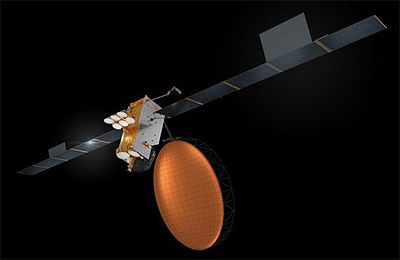Inmarsat-6 F2 Satellite Suffers ‘Unprecedented’ Anomaly

An Inmarsat-6 F Satellite. Photo: Inmarsat
The Inmarsat-6 F2 satellite could be a total loss due to an anomaly with the power subsystem that occurred during orbit raising, Viasat said in an update Thursday afternoon. Viasat and manufacturer Airbus are investigating the cause of the issue and if the satellite will be able to perform its mission.
Airbus advised the anomaly is an “unprecedented event,” as it has never had a telecommunications satellite fail in orbit.
But it’s not unprecedented for Viasat — this could be the company’s second recent satellite failure. The operator’s long-awaited flagship ViaSat-3 has an issue with its solar array, but Viasat hasn’t declared it a total loss yet.
As for the I-6 F2, which SpaceX launched in February, Viasat said it does not expect it to affect the company’s financial outlook for revenue and adjusted EBITDA growth. The satellite was meant to augment Inmarsat’s L-band satellites and supplement capacity and provide redundant coverage. It is based on the Airbus Eurostar E3000 spacecraft, with an L-band antenna and six multi-beam Ka-band antennas. Its twin satellite, I-6 F1, is operating normally.
Viasat said that the manufacturing and launch costs for the satellite were insured and “near-term cash positions are expected to improve.”
If both the I-6 F2 and ViaSat-3 are failures, the operator could potentially be making two insurance claims in the near future.
Viasat tried to provide reassurance in Thursday’s release that this failure will not affect its bottom line.
“I6 F2’s initial mission was essentially to provide spare L-band and four Gbps of additional Ka-band capacity, consistent with deploying and operating a resilient, redundant network,” said Mark Dankberg, chairman and CEO of Viasat.
Viasat has three more L-band satellites — the Inmarsat-8 fleet — under construction to strengthen the company’s global safety services. In regards to the Ka-band payload, the Viasat/Inmarsat merger gives the company a combined fleet of 11 Ka-band satellites and access to partner satellites. Seven more Ka-band satellites are also under construction to grow the company’s global mobility services.